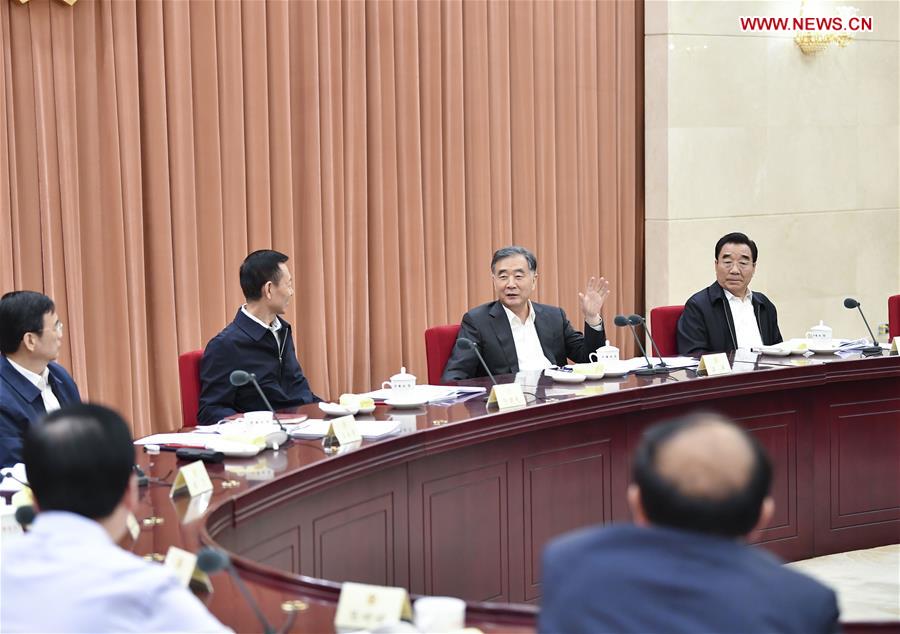
Wang Yang (back, 2nd R), a member of the Standing Committee of the Political Bureau of the Communist Party of China Central Committee and chairman of the National Committee of the Chinese People's Political Consultative Conference (CPPCC), presides over a biweekly session of the CPPCC National Committee in Beijing, capital of China, May 13, 2019. (Xinhua/Yin Bogu)
BEIJING, May 13 (Xinhua) -- Chinese political advisors gathered Monday to discuss the revision of the country's copyright law during a biweekly session in Beijing.
Held by the National Committee of the Chinese People's Political Consultative Conference (CPPCC), the session was presided over by Wang Yang, a member of the Standing Committee of the Political Bureau of the Communist Party of China Central Committee and chairman of the CPPCC National Committee.
Wang noted that copyright law was the pillar of legislations on intellectual property, and significant to the creation and distribution of cultural and intellectual products, improving Chinese people's literacy in science and culture, and building the country into a global leader in innovation.
He called for adherence to a people-oriented philosophy of development to properly deal with the relationship between the creation, protection and utilization of copyright, and establishing a copyright system with Chinese characteristics in the new era.
A total of 12 CPPCC members and scholars put forward their suggestions on the revision, while over 160 political advisors shared their thoughts via the mobile platform of the top advisory body.
With the rapid development of the economy, the society and science and technology, especially with the popularity of the Internet, the current copyright system faces a lot of new circumstances and problems, which makes the revision of the law imperative, according to the political advisors.
Some stressed the importance of both taking into consideration China's national conditions and learning from the common practice abroad in the revision, and asked for the balance of speed and quality in legislation, as well as the proper handling of the relationship between copyright creators, distributors and users in terms of interests.
Others suggested tougher punishment against infringement of copyright, with the establishment of a punitive compensation system, to solve problems such as the low costs of violations of the law, and the high costs for copyright protection.



